第70章 CHAPTER THE FIFTH(1)
THE ASSIZE OF JEALOUSY
1
It was very manifest in the disorder of papers amidst which White spent so many evenings of interested perplexity before this novel began to be written that Benham had never made any systematic attempt at editing or revising his accumulation at all.There were not only overlapping documents, in which he had returned again to old ideas and restated them in the light of fresh facts and an apparent unconsciousness of his earlier effort, but there were mutually destructive papers, new views quite ousting the old had been tossed in upon the old, and the very definition of the second limitation, as it had first presented itself to the writer, had been abandoned.To begin with, this second division had been labelled "Sex," in places the heading remained, no effective substitute had been chosen for some time, but there was d many appetites that are not sexual yet turn to bodily pleasure, and on the other there are elements of pride arising out of sex and passing into other regions, all the elements of rivalry for example, that have strained my first definition to the utmost.And I conceive it, marches to its end.It saves itself for the truth rather than sacrifices itself romantically for a friend.It justifies vivisection if thereby knowledge is won for ever.It upholds that Brutus who killed his sons.It forbids devotion to women, courts of love and all such decay of the chivala closely-written memorandum, very much erased and written over and amended, which showed Benham's early dissatisfaction with that crude rendering of what he had in mind.This memorandum was tacked to an interrupted fragment of autobiography, a manuscript soliloquy in which Benham had been discussing his married life.
"It was not until I had been married for the better part of a year, and had spent more than six months in London, that I faced the plain issue between the aims I had set before myself and the claims and immediate necessities of my personal life.For all that time Istruggled not so much to reconcile them as to serve them simultaneously...."At that the autobiography stopped short, and the intercalary note began.
This intercalary note ran as follows:
"I suppose a mind of my sort cannot help but tend towards simplification, towards making all life turn upon some one dominant idea, complex perhaps in its reality but reducible at last to one consistent simple statement, a dominant idea which is essential as nothing else is essential, which makes and sustains and justifies.
This is perhaps the innate disposition of the human mind, at least of the European mind--for I have some doubts about the Chinese.
Theology drives obstinately towards an ultimate unity in God, science towards an ultimate unity in law, towards a fundamental element and a universal material truth from which all material truths evolve, and in matters of conduct there is the same tendency to refer to a universal moral law.Now this may be a simplification due to the need of the human mind to comprehend, and its inability to do so until the load is lightened by neglecting factors.William James has suggested that on account of this, theology may be obstinately working away from the truth, that the truth may be that there are several or many in compatible and incommensurable gods;science, in the same search for unity, may follow divergent methods of inquiry into ultimately uninterchangeable generalizations; and there may be not only not one universal moral law, but no effective reconciliation of the various rights and duties of a single individual.At any rate I find myself doubtful to this day about my own personal systems of right and wrong.I can never get all my life into one focus.It is exactly like examining a rather thick section with a microscope of small penetratrion; sometimes one level is clear and the rest foggy and monstrous, and sometimes another.
"Now the ruling ME, I do not doubt, is the man who has set his face to this research after aristocracy, and from the standpoint of this research it is my duty to subordinate all other considerations to this work of clearing up the conception of rule and nobility in human affairs.This is my aristocratic self.What I did not grasp for a long time, and which now grows clearer and clearer to me, is firstly that this aristocratic self is not the whole of me, it has absolutely nothing to do with a pain in my ear or in my heart, with a scar on my hand or my memory, and secondly that it is not altogether mine.Whatever knowledge I have of the quality of science, whatever will I have towards right, is of it; but if from without, from the reasoning or demonstration or reproof of some one else, there comes to me clear knowledge, clarified will, that also is as it were a part of my aristocratic self coming home to me from the outside.How often have I not found my own mind in Prothero after I have failed to find it in myself? It is, to be paradoxical, my impersonal personality, this Being that I have in common with all scientific-spirited and aristocratic-spirited men.This it is that I am trying to get clear from the great limitations of humanity.
When I assert a truth for the sake of truth to my own discomfort or injury, there again is this incompatibility of the aristocratic self and the accepted, confused, conglomerate self of the unanalyzed man.
The two have a separate system of obligations.One's affections, compounded as they are in the strangest way of physical reactions and emotional associations, one's implicit pledges to particular people, one's involuntary reactions, one's pride and jealousy, all that one might call the dramatic side of one's life, may be in conflict with the definitely seen rightnesses of one's higher use...."The writing changed at this point.